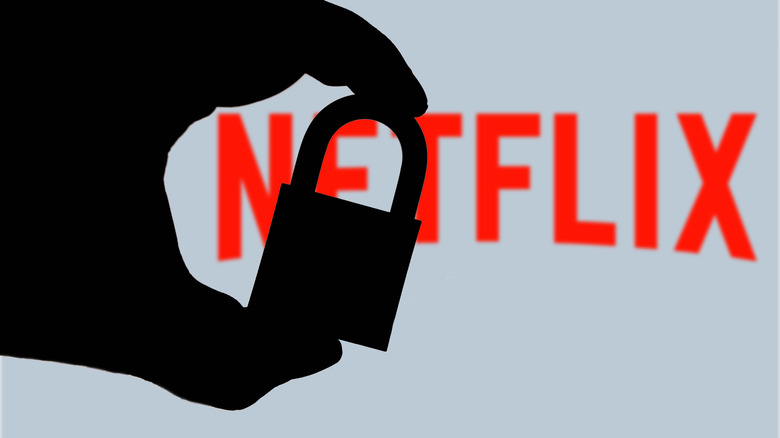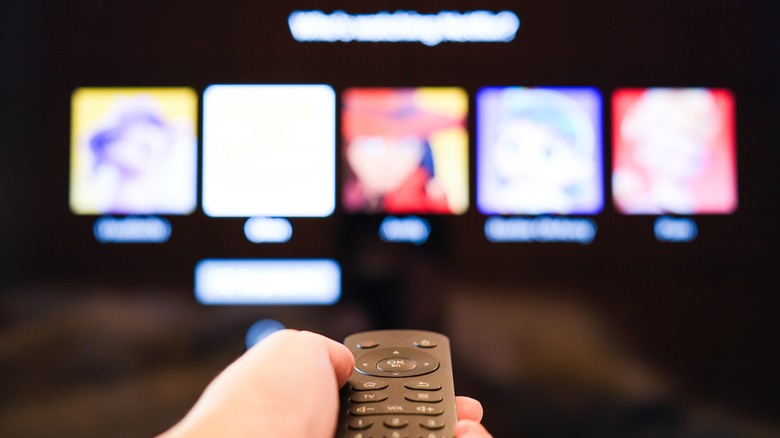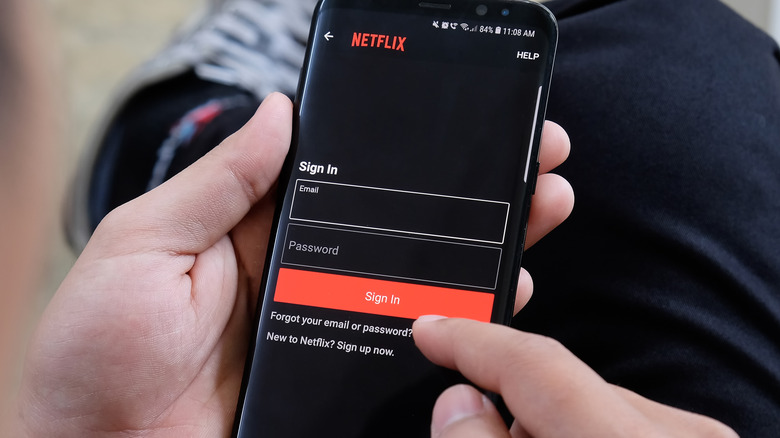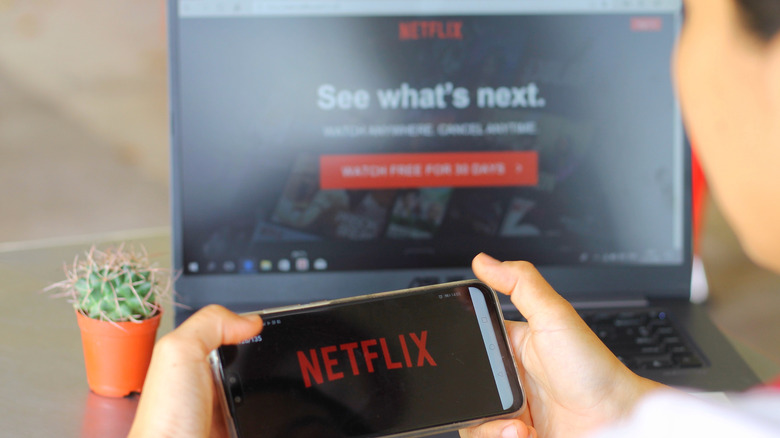The New Netflix Password Sharing Rules Are Going To Make A Lot Of People Mad
Theoretically, there could only actually be a handful of active, paying, Netflix accounts worldwide — while the majority of people actually watching the service have simply bummed a password from a friend or relative. This is extreme and likely not the case, but people who aren't the primary user logging into Netflix is far from uncommon — and the streaming service knows it.
While a number of non-paying users would likely opt to go without if they were confronted with a bill, Netflix itself may see them as lost revenue. As a result, the streaming service has committed itself to stamping out freeloaders and making sure every household watching its shows has actually paid for them. Although a new ruleset has just been issued, the idea itself is nothing original. Netflix has been openly opposed to password sharing for a long time. It has also attempted to stop it on several occasions. Once, it tested out an "add a home" fee in an attempt to make password sharing more legitimate. On another occasion, it gently suggested users who were mooching transfer their profiles to their own accounts. And there was also a verification system, which is similar to what has just been put in place, but far less irritating
How is Netflix combating this?
Netflix's latest plan to combat password sharing involves a more irritating version of the verification process. It relies on Netflix sussing out which devices are yours and where you live. Netflix figures out which devices belong to you and where your household is by using things like: "IP addresses, device IDs, and account activity from devices signed into the Netflix account." When a device that Netflix doesn't recognize uses Netflix outside of your "household" then it may be prompted to verify the account before it is allowed access. The same applies to unrecognized devices that repeatedly access the service from outside your "household." Previously, you only had to verify each device once. Now, from what Netflix have implied, devices outside of your household may be asked to verify repeatedly.
Verification involves entering a code that is sent to the account holder's email address within 15 minutes. If more than 15 minutes elapse, then a new code has to be requested. VPN users are also likely to be affected — as the use of a VPN is against Netflix's terms —and they are unlikely to get a reprieve. If you use a VPN, even in your own home, it will make your device appear as if it is somewhere else. As VPN usage will flag your account as being accessed from outside your household, there is an increased chance of Netflix regularly requiring verification.
It's also inconvenient for those playing by the rules
Even if you weren't sharing your Netflix account with your friends and family, streaming is about to get a bit more difficult for you too. Netflix says if you're traveling for a short period of time and using a device that is "associated" with your account, you shouldn't have to verify it. The site doesn't go into specifics, but this probably covers tablets, phones, and laptops that are signed into Netflix and used regularly within your household. People who live between two or more homes, like those who work away from their primary residence, or folks who winter in a warmer climate, shouldn't be affected by the changes according to Netflix's FAQ on the subject.
But that isn't the case. In a different section, the company mentions those traveling for an "extended period" may be required to verify their device periodically. So if you're shifting to Florida between October and April but retaining a primary residence in another state, you should expect to be badgered at least once — even if devices you're watching Netflix on have traveled with you from your primary address. Similarly, if you're staying around a friend's house and want to watch something on your Netflix account, you're not breaking any rules. But you will have to verify the device you are watching Netflix on, and if you struggle to access your email account on the go, you may not be able to access it.
What are the consequences if you still flaunt the rules?
Despite making things inconvenient for both password sharers and regular users who play by the rules, Netflix's current plan doesn't really do much beyond annoying users into compliance. In 2022, it was suggested that Netflix may force people caught password sharing to pay extra or have their account closed (via Forbes). However, this isn't actually the case. The company has explicitly stated that "Netflix will not automatically charge you if you share your account with someone who doesn't live with you."
They could make the verification prompts so common people are annoyed into compliance. Netflix hasn't stated how often the prompts will appear, just that they will almost never happen in the "main household.' It may happen in unrecognized households, or on unrecognized devices. If it occurred say, every time you wanted to start a show or a new episode started playing, it may be enough to prompt someone to get their own account. A 2 a.m. phone call asking an account holder to quickly check their inbox so a password sharer can continue their streaming binge might be enough to oust someone. The chances are, whatever the new plan is it will be mildly irritating and largely ineffective. But looking at the backlash Netflix faces every time it tries to implement an anti-password sharing policy, it may be the best the company can do.



